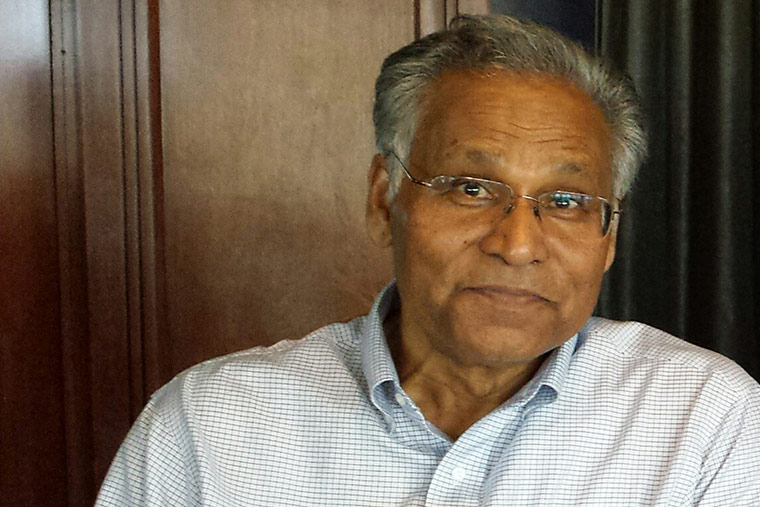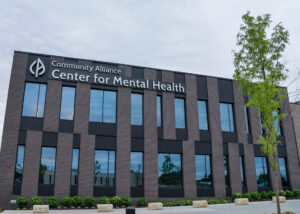Recovery is a Family Journey

Certainly, mental illness challenges the individual with the diagnosis, but it also has a serious impact on family and loved ones. At the same time, the active support of those family members and loved ones can be vital to recovery. “Going clear back to the 1940’s, the stigma associated with mental illness has prevented people from seeking help they desperately need. It has caused families to try to use parenting as a therapy,” observed Jai Sookram, PhD, Program Manager, Family Education and Peer Support Services at Community Alliance. “We have a history in Western countries, but particularly the United States, of blaming parents for whatever their children do. It’s what we call a moral theory. If you have a family member who drinks a lot, who gambles, who steals – that’s a moral failing. Substance use and substance dependence were viewed as a moral failing. Even those going through medical school or getting their doctorate in social sciences, were not exempt from this bias. For many years, people in white coats with many letters behind their names, real authority figures in the culture were saying to mothers, your son has schizophrenia because you are very cold.”
“Without mental health, there is no health.”
“When serious mental illness is not properly addressed, a bad situation can turn tragic. In my professional life, family psychoeducation has been the most effective tool we have used to assure family wellness and good patient outcomes,” Jai asserted. “The fundamental premise behind it is that if someone understands what is happening to them, they can manage it. And in managing it, they will include the help of their friends, their neighbors and their relatives, in order to get to the best outcome. In behavioral health challenges, the strongest predictor of recovery and wellness is family support. “
“In behavioral health challenges, the strongest predictor of recovery and wellness is family support.”
Working to Debunk the Misinformation and Stigma
When Jai began his career, he explained that there were three rampant misguided premises.
The first was that mental illnesses were incurable, that there was no recovery for mental illness. The second was that families contribute to the illness. Without the benefit of education and support, there is bound to be great conflict within a family that is dealing with a member with a serious mental health condition. The third issue was that the behavioral health industry was creating perpetual patients – there was an abundance of treatments and medications, yet the number of patients was continuing to climb.
A Generational Problem Finds a Family Solution.
“There is this secondary problem that involves the children raised by individuals with serious mental illnesses,” Jai explained. “Just this morning, I spoke with a father who said, ‘Do you remember me? I came to you when I was very sick, and you put me through the program. I have my master’s degree now and I’m teaching college. Unfortunately, as you warned me, my daughter has serious issues now.’”
From what this father had described to Jai, his daughter now struggles with low frustration tolerance – from being continually let down as a child by her alcoholic parent. “Adult children of alcoholics or people with serious illnesses form few but intense relationships,” Jai noted. “And when they are let down by someone they are in a close relationship with, they will likely become very upset. So, what I teach those individuals is how to do contingency planning.”
“If we don’t teach the skills to manage this kind of overwhelming frustration, and this becomes an ongoing and unresolved frustration, someone like this man’s daughter could possibly experience a very complicated life – say two, three, four divorces down the road – and eventually developing reactive depression or despondency or seasonal affective disorder,” Jai observed. “We have to prevent these things. Family psychoeducation can help. It is a research-driven, evidence-based practice that’s approved by the Substance Abuse, Mental Health Services Administration (SAMHSA) and the federal government as a best practice.”
Jai went on to explain that contingency planning is the process of self-observation, self-evaluation and then self-reinforcement – meaning you keep what works and you throw away what doesn’t. In the example of the daughter, Jai explained that she was frightened with the prospect that people were continuing to let her down, to the point that she didn’t know how to handle her overwhelming sense of disappointment, and it made her feel disconnected from her friends – ready to cut them off entirely. “The dynamic is quite logical, but the experiences can be devastating to the person. If the issue continues without any alleviation, without being able to manage it, it can turn on a real illness,” Jai continued. “Contingency planning could help her evaluate each scenario, keep it in context and accommodate the foibles of other people. You have a plan B, a plan C. You live your life in a way that anticipates calamities, if you will, and has a crisis management plan.”
Focus on the Family-to-Family Program at Community Alliance
Family-to-Family is an evidenced-based program supported by the National Alliance of Mental Illness (NAMI) meaning research reveals that this program has helped significantly improve coping techniques and problem-solving abilities of the people closest to a person with a mental health condition. The group setting of NAMI Family-to-Family at Community Alliance offers the mutual support of a shared experience among like-minded people who understand living with a loved one with a serious mental illness.
In the Family-to-Family program, participants are able to learn about:
- How mental health conditions impact the entire family
- Supporting your loved one with compassion
- How to communicate effectively and solve problems
- How to handle a crisis
- The importance of managing stress and caring yourself
- Local resources and support services
- The latest research on mental health conditions
- The latest treatments and therapies
Living a Recovered Life
In the years that Jai has been with Community Alliance, he has been able to organize and implement a full-blown, fully developed, well organized program of family education and peer support services. Jai explained that the elements of the program have been around since the late nineties “I thoroughly believe in the neuroscience that we have today as an explanation for what’s actually going on in mental illness. I do not see mental health disorders as an irreversible, incurable condition,” Jai explained. “If we can help people with serious mental illnesses learn how to manage their condition – with medicine, with counseling, with rehabilitation services and with family psychoeducation and peer specialist support – and go back to school, get an education, find a career and thrive beyond illness, then they are living a recovered life.”
Help is Within Reach
We offer a full range of integrated health services including primary and psychiatric care, mental health and substance use counseling, rehabilitation and employment services, supportive housing, community, family and peer supports, and more.



